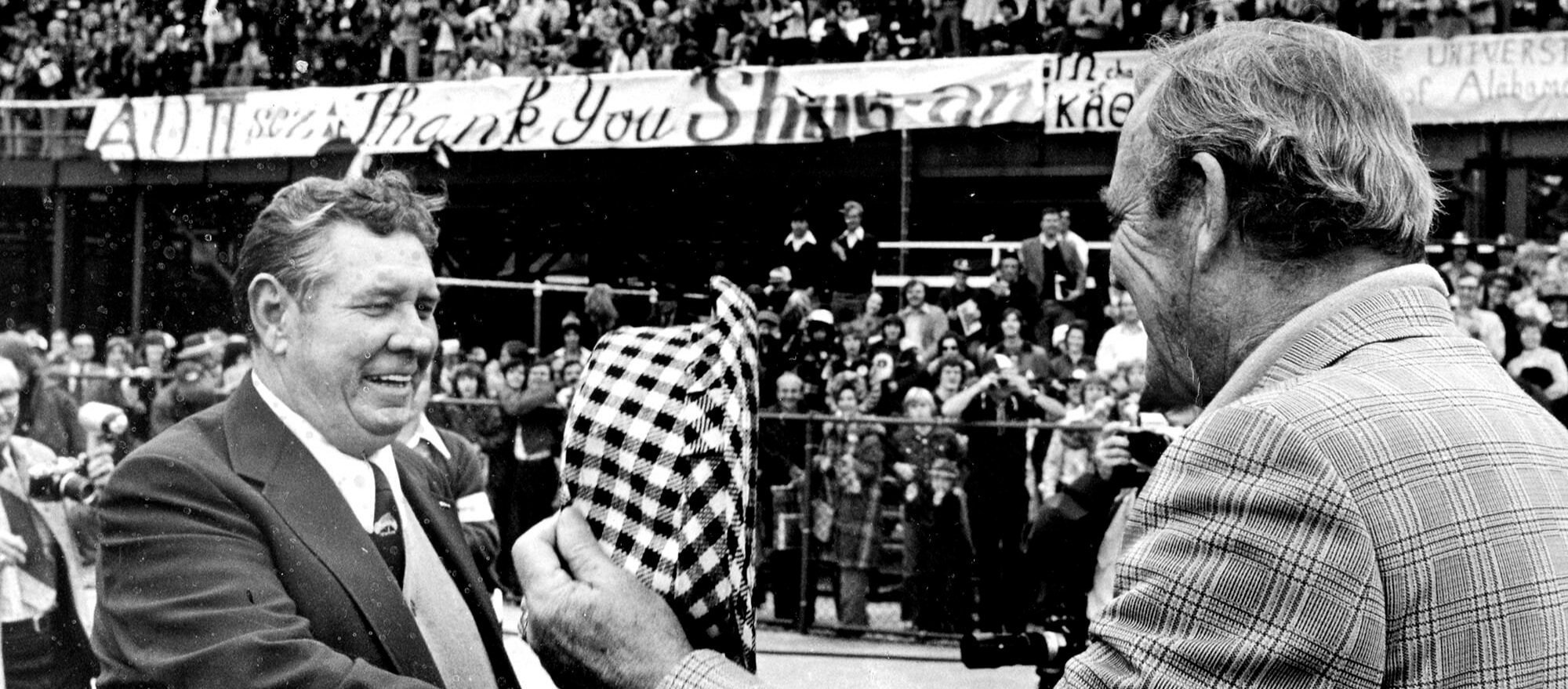
The Iron Bowl Over the Years
On Nov. 27, 1982, the crowd fell silent as sports commentator Keith Jackson’s voice came out over the speaker: “Birmingham, Alabama on a day with the temperature in the low 60’s... It is a grey, overcast kind of day. Legion Field, however, is one of the most colorful places in the country—always is when Auburn and Alabama get together… And the Crimson Tide will kick off.”
Jackson was welcoming fans that day to the Iron Bowl—the college football rivalry game that occurs each year between the University of Alabama Crimson Tide and the Auburn University Tigers.
That year the teams played their 47th Iron Bowl, which ended in a 23-22 victory for the Tigers after the play by Auburn running back Bo Jackson that would be dubbed “Bo Over the Top” and go down in history as one of the most memorable Iron Bowl moments.
Among the fans at Legion Field that day was first-year Auburn graduate student Ric Smith, who didn’t know then that 25 years later it would be he who would take on the role of public announcer for Jordan-Hare Stadium and call his first Iron Bowl—the 2007 home game for the Tigers that would end in their 17-10 victory over the Tide.
“By that point I had done two seasons of games, but that first Alabama game… I mean, it’s the Alabama game,” Smith said. “Everybody is amped up, and I was too. I was so glad Auburn won that game.”
In his various roles throughout the years—including fan, student, professor, and public announcer—Smith has witnessed several historic Iron Bowl games. Perhaps the most memorable, he said, was the 2013 match-up, better known now as “The Kick Six,” in which Auburn cornerback Chris Davis returned a missed field goal 109 yards for the winning touchdown on the final play of the game.
“Bo Over the Top” and “The Kick Six,” are just two of 88 Iron Bowls that have been played by Auburn and Alabama since the rivalry’s inception in 1893.
It wasn’t until 1964 that the game got its name after Auburn Head Coach Ralph “Shug” Jordan dubbed the rivalry the “Iron Bowl” in reference to Birmingham, the city in which the teams first played, and its status as a pioneer in the steel industry at the time.
Just 34 years later, in 1998, the Iron Bowl would be played at Legion Field in Birmingham for the last time, and a new era of the schools alternating years and hosting the games on their own campuses would begin.
“Being in Legion Field for the Iron Bowl… that was really cool,” Smith said. “But this is better.”
According to Smith, the one thing about the rivalry that has stayed the same over the years is the passion— although the speed and the scope of the game have advanced greatly.
The teams have also added new layers of competition into their rivalry over the years, including the Kerry and Gary Iron Bowl Challenge to defeat ALS, the Operation Iron Ruck campaign to bring awareness to the epidemic of veteran suicide, and the annual food drives—Beat Auburn Beat Hunger and Beat Bama Food Drive—that began in 1994 with the goal of fighting hunger and poverty across the state of Alabama.
For these aspects of the rivalry, the goal is less about defeating the other team and more about helping people and making a positive impact across Alabama.
“It’s fueled by service, love, and care, and I feel like that’s a more powerful motivator than hate,” said Ethan Gutteridge, 2023 BBFD Director of Off Campus Relations.
The football rivalry remains the reason for it all, however, and each year both teams work to prepare to battle each other in the Iron Bowl at the end of the season and earn bragging rights until they meet again.


